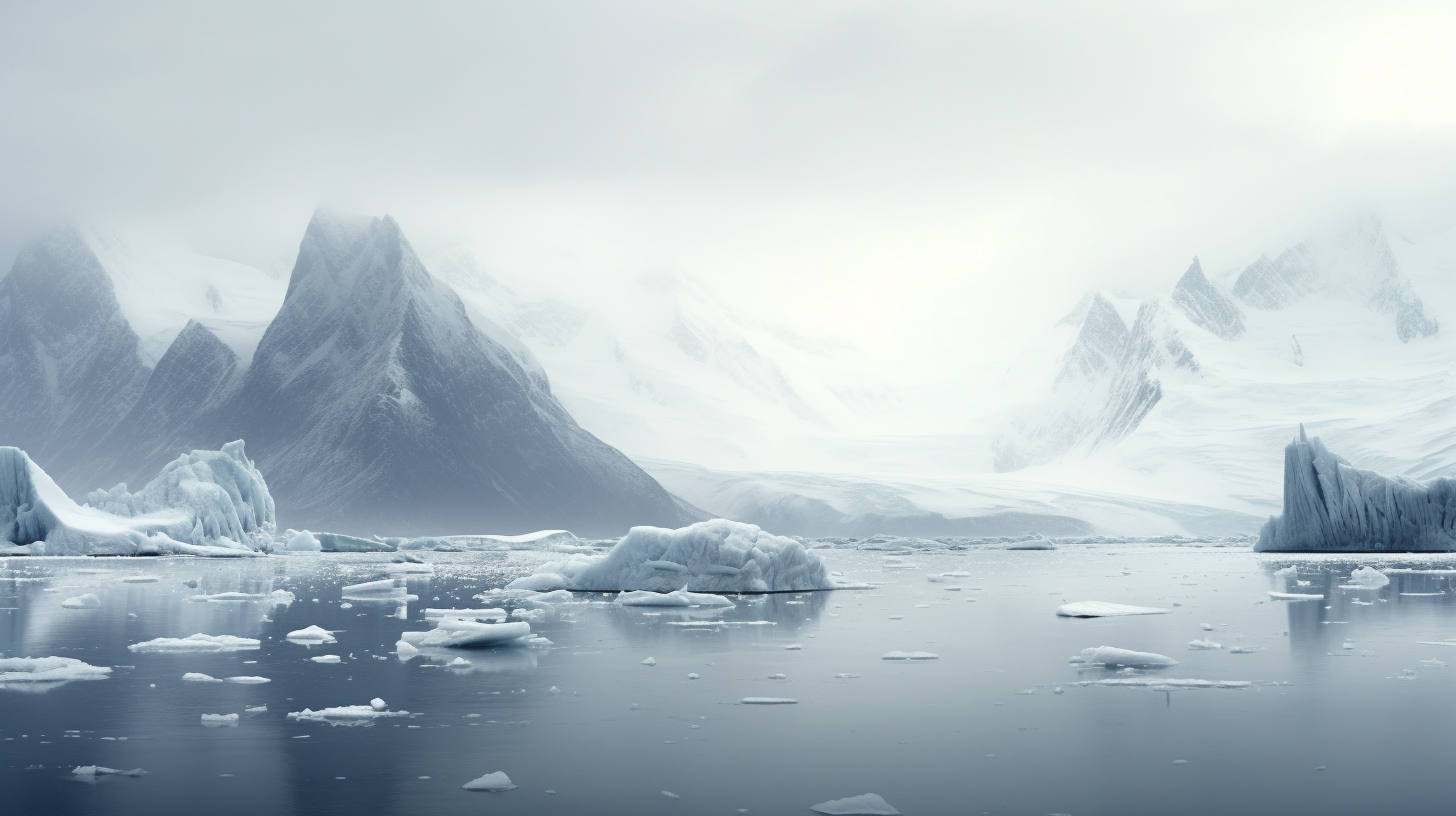In an era where the relentless march of climate change continues unimpeded, the world watches as its ancient, icy sentinels succumb to tears. ‘When Glaciers Weep – Melancholy Meltdowns Reshaping Our World’, tells a tale of our planet’s glaciers, caught in the throes of a somber dissolution that foretells a dire reshaping of the world as we know it. The glaciers, those stolid behemoths of ice, are shedding volumes of water that submerge shorelines and bend the back of the land itself.
Our globe’s glaciated regions, once the mighty architects of landscapes and climate regulators, are succumbing to warming temperatures at a rate that writes a new, chilling chapter. This chapter does not promise a resurrection or a return to glacial grandeur, but forecasts an irrevocable transformation fraught with ecological grief. The magnitude of this loss can be seen in the shedding of the Greenland Ice Sheet, where billions of tons of ice have melted away, contributing to rising sea levels that drown the hopes of coastal civilizations.
Whispers of the Past, once locked away in glacial archives, divulge ancient atmospheres through bubbles of antiquated air. Today, these whispers are being silenced as glaciers diminish, begging the question—what histories, what chronicles of our own doings, will remain untold because we chose to stifle the voices of these frozen sentinels?
This depiction is not one of fiction; it is both our legacy and our burden to bear. The urgency to act was once a fire alarm that has now melted into the white noise of glaciers’ lamentations. As we stand on the crumbling brink of primordial ice, we are left with sobering evidence of our own environmental apathy, cementing a legacy of lethargy that has fueled the melancholic meltdown of a once-persistent polar might.
The flow of this glacial elegy doesn’t just meld into the ocean—it cascades through ecosystems, altering currents, weather patterns, and the very fabric of life. Marine species find their homes capsized by the brackish influx, while farmland fertility flinch as sea levels inch upwards, salting the earth and sowing seeds of adversity for future generations.
How have we come to this pass? This question echoes in the emptiness where once glaciers stood. The blatant disregard for the somber warnings of science has nurtured a future where our children inherit the dry tears of glaciers—a world reshaped by our own heated desires, and now, devoid of the white giants that once stood witness to our ascent.
In the grieving gaia, the symphony of melting water is not one of renewal but rather an elegy—a mournful melody that accompanies a planet in peril, an atmosphere burdened with the exhalations of industry and extinguished by the silence of the eternal ice that no longer reigns.
What stories will we tell when we’re left with mere ghosts of these frozen titans? As glaciers retreat, they pull back the curtain on the stark reality of our choices, unfurling a panorama of consequences that span from drought-ridden farmlands to suffocating coral reefs—a full spectral display of decline in nature’s opulent theater.
In embracing this poignant truth, we come face to face with the fact that there is no act two in this production. The ‘when’ has become ‘now’, and the weeping glaciers are a testament to the resolute fate we have charted. Let this article serve as a time capsule for our melting world—may it pierce the hearts of those who encounter it, and foster reflection among those who can still vouch for action in the midst of our somber, glacial requiem.
